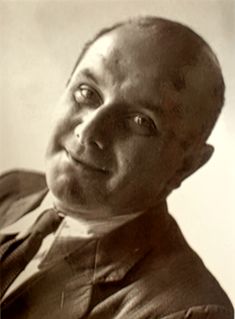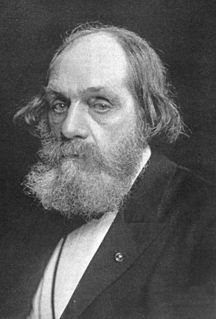A Quote by Margaret Atwood
and each of his voices left his body in a different colored soul and floated up towards the sun still singing.
Related Quotes
It is God's earth out of which man is taken. From it he has his body. His body belongs to his essential being. Man's body is not his prison, his shell his exterior, but man himself. Man does not "have" a body; he does not "have" a soul; rather he "is" body and soul. Man in the beginning is really his body. He is one. He is his body, as Christ is completely his body, as the Church is the body of Christ
When Christ was about to leave the world, He made His will. His soul He committed to His father; His body He bequeathed to Joseph to be decently interred; His clothes fell to the soldiers; His mother He left to the care of John; but what should He leave to His poor disciples that had left all for Him? Silver and gold He had none; but He left them that which was infinitely better, His peace.
At that instant he knew that all his doubts, even the impossibility of believing with his reason, of which he was aware in himself, did not in the least hinder his turning to God. All of that now floated out of his soul like dust. To whom was he to turn if not to Him in whose hands he felt himself, his soul, and his love?
The true Indian sets no price upon either his property or his labor. His generosity is limited only by his strength and ability. He regards it as an honor to be selected for difficult or dangerous service and would think it shameful to ask for any reward, saying rather: "Let the person I serve express his thanks according to his own bringing up and his sense of honor. Each soul must meet the morning sun, the new sweet earth, and the Great Silence alone!. What is Silence? It is the Great Mystery! The Holy Silence is His voice!
Who you really are, is an immaterial soul and the body is an external thing that's sort of an encrustation your soul. So this has important implications for Plotinus' ethics, because his ethics are basically all about encouraging us to turn away from the body and turn towards these higher principles, so universal soul, universal intellect and ultimately the One.
In each studio there is a human being dressed in the full regalia of his myth fearing to expore a vulnerable opening, spreading not his charms but his defences, plotting to disrobe, somewhere along the night-- his body without the aperture of the heart or his heart with a door closed to his body. thus keeping one compartment for refuge, one uninvaded cell.
Out of the silver heat mirage he ran. The sky burned, and under him the paving was a black mirror reflecting sun-fire. Sweat sprayed his skin with each foot strike so that he ran in a hot mist of his own creation. With each slap on the softened asphalt, his soles absorbed heat that rose through his arches and ankles and the stems of his shins. It was a carnival of pain, but he loved each stride because running distilled him to his essence and the heat hastened this distillation.
And when my body shall cease, my soul will still be yours, Claire? I swear by my hope of heaven, I will not be parted from you." The wind stirred the leaves of the chestnut trees nearby, and the scents of late summer rose up rich around us; pine and grass and strawberries, sun-warmed stone and cool water, and the sharp, musky smell of his body next to mine. "Nothing is lost, Sassenach; only changed." "That's the first law of thermodynamics," I said, wiping my nose. "No," he said. "That's faith.
[I]t is easy to regard the mind and the body as two slaves trained to obey the imperial soul.... [I]n this trinity of soul, mind, and body, it is sometimes hard to tell which of the three is at work; and the personality of each of the three parties interferes a good deal with that of each of the others. But if you who read will remember that you are an infinite child of God, and can partake of his nature, and that you have given to you the management and direction of your mind and your body, you will be saved many failures.





































